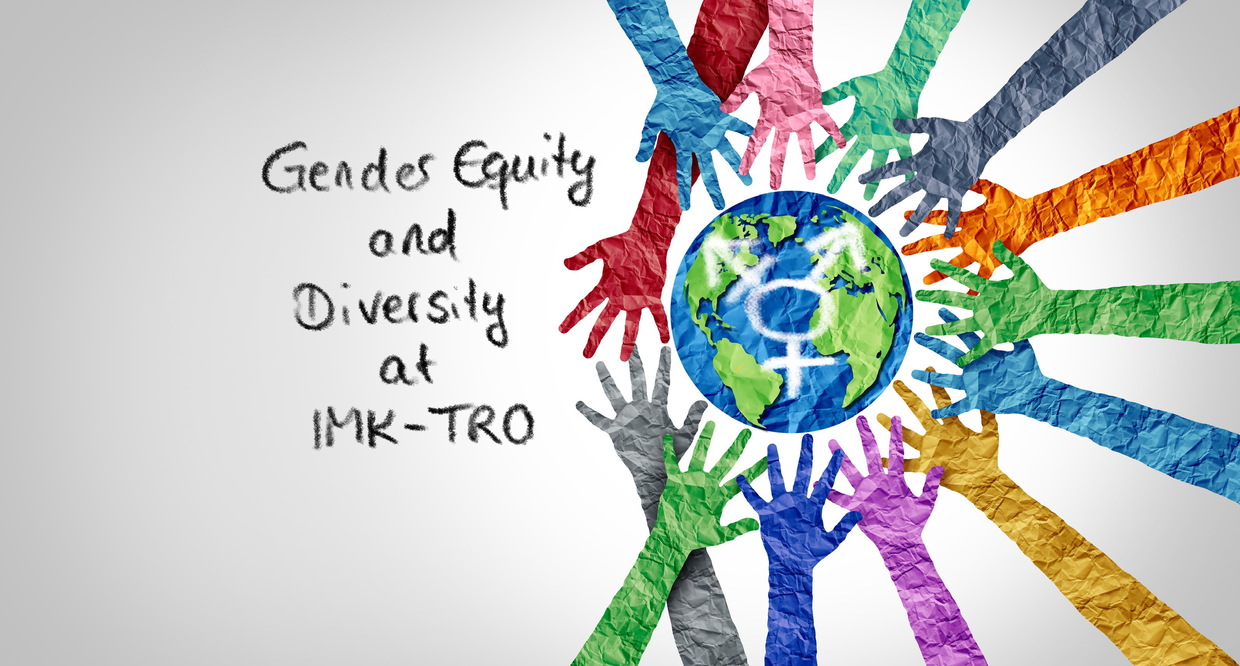Time for Change

People from different backgrounds view issues and problems from different perspectives, which sets the stage for innovative and holistic approaches. Gender, cultural and generational diversity in the workplace can therefore contribute significantly to the success of an organization or company (e.g. Nielsen et al., 2017; Powell, 2018). But understanding that equal opportunities and valuing diversity are therefore important is one thing; making both reality in everyday work is another (e.g. Guillaume et al., 2013). The IMKTRO is now facing this challenge in a new project that has the potential and goal of initiating a change in the institute's culture.
On August 1, 2022, a pilot project for the implementation of more equal opportunities and appreciation of diversity started at the IMKTRO, which is funded within the framework of the Excellence University project Gender Equity 1 until October 2023. The project is assigned to Division 4, "Natural and Built Environment." The project is coordinated by Corinna Hoose, Christian Grams, Martina Klose and Roswitha Marioth (IMKTRO), who are supported by Lisa-Ann Kautz (BL4). The project is also accompanied by the consulting company EAF Berlin. EAF Berlin has been active since 1996 as an independent non-profit organization at the interface between politics, business and science and combines scientific expertise with many years of practical experience in consulting and training. In the first project phase, the status quo at the IMKTRO will be analyzed. The analysis will include, among other things, statistics on the development over time of the proportion of women in various career levels and fields of activity. Furthermore, EAF Berlin will conduct individual interviews with some of the IMKTRO employees to gain insight into their personal experiences, as well as conduct an online survey with all IMKTRO employees. The analysis of the current state will serve as the basis for the strategy development that will then follow. Subsequently, concrete measures for the improvement of internal institute processes will be defined, which will then be implemented in a next step.
The goal of the project is to achieve and maintain a real change in the institute's culture by adapting internal processes. Processes that are less discriminatory, for example in communication or in hiring procedures, are to ensure an equal distribution of tasks and opportunities and increase the attractiveness of the IMKTRO as an employer, thereby attracting and retaining excellent employees. The visibility of the values and goals developed will be ensured by displaying them as a mission statement on the institute's website. In addition, the approaches and guidelines developed will also be made available as a template for other institutes.
Referenzen:
• Guillaume et al. (2013). Getting diversity at work to work: What we know and what we still don't know. Journal of occupational and organizational psychology, 86(2), 123-141. https://doi.org/10.1111/joop.12009
• Nielsen et al. (2017). Gender diversity leads to better science. Proceedings of the National Academy of Sciences, 114(8), 1740-1742. https://doi.org/10.1073/pnas.1700616114
• Powell, K. (2018). The power of diversity. Nature, 558(7708), 19-22. https://doi.org/10.1038/d41586-018-05316-5
